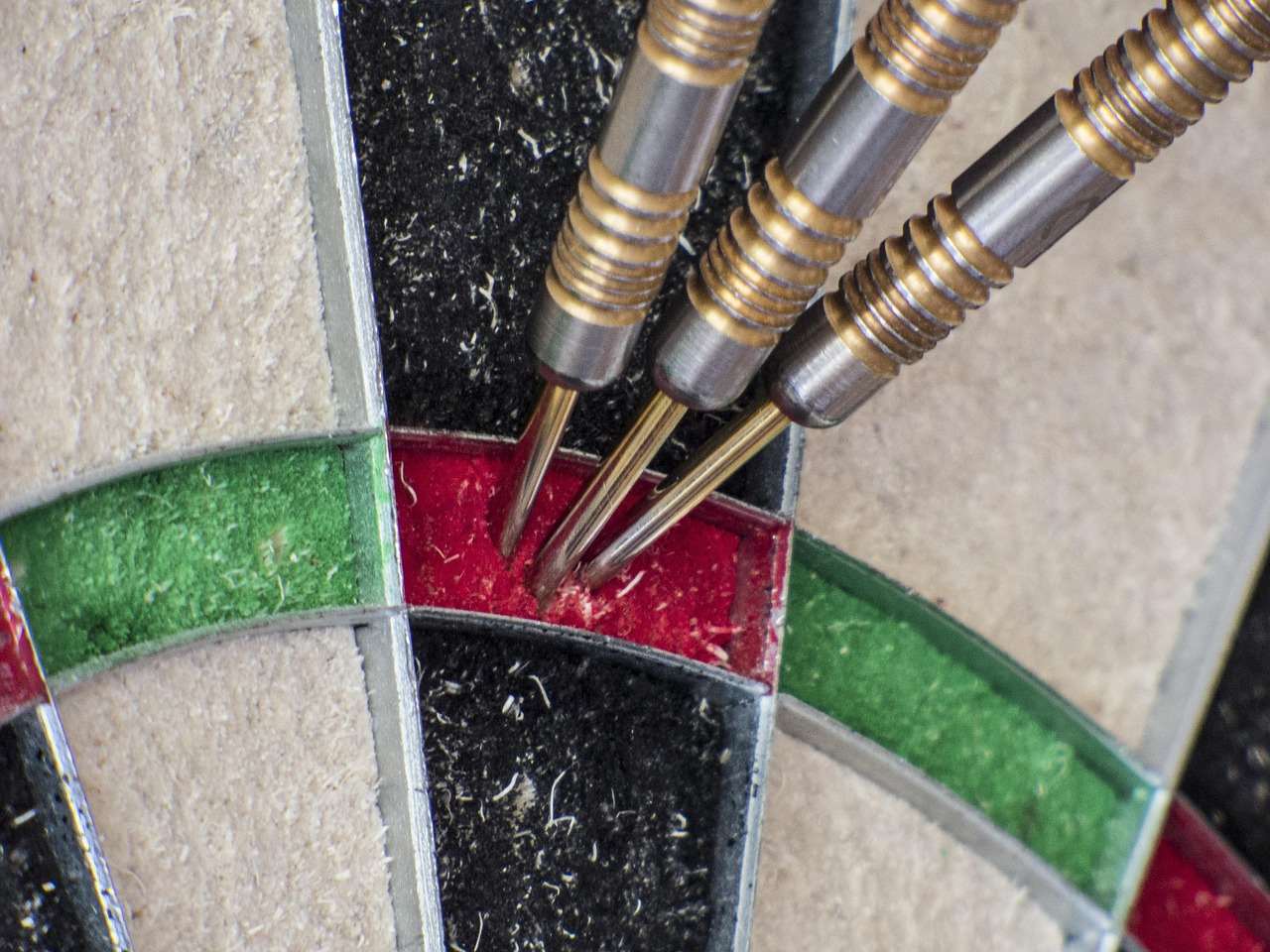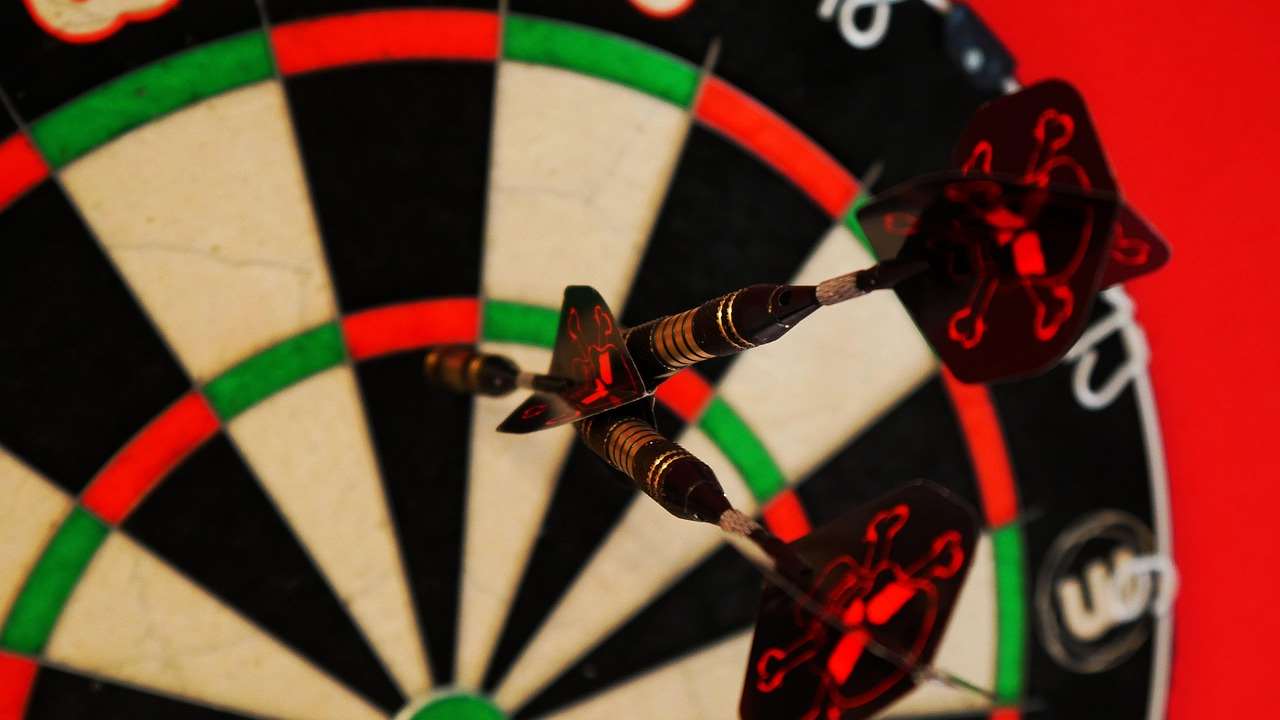Generally, **can a player challenge an opponent’s score without penalty**? The answer is usually yes, within the established rules of the game and with valid reasoning. This article will explore the situations where score challenges are permissible, the proper procedure for doing so, and the potential consequences of frivolous challenges across various games.
⚠️ Still Using Pen & Paper (or a Chalkboard)?! ⚠️
Step into the future! The Dart Counter App handles all the scoring, suggests checkouts, and tracks your stats automatically. It's easier than you think!
Try the Smart Dart Counter App FREE!Ready for an upgrade? Click above!
Understanding the Basis for Score Challenges
Before delving into specific games, it’s important to understand the underlying principle behind allowing players to challenge scores. The primary reason is to ensure fair play and accurate record-keeping. Mistakes happen, whether unintentional errors in calculation or misinterpretations of rules. Allowing a challenge mechanism provides a safeguard against these errors, promoting a more just and competitive environment. This is especially important when basic darts fundamentals for beginners are still being mastered.

However, this right to challenge is not absolute. There are often conditions and procedures that must be followed to prevent abuse and maintain the flow of the game. These may include raising a challenge within a specific timeframe, providing a legitimate reason for the challenge, and accepting the final ruling of a designated authority (e.g., a referee or scorekeeper).
Can a Player Challenge an Opponent’s Score Without Penalty? A Game-Specific Look
The rules governing score challenges vary significantly depending on the game being played. Let’s examine a few popular examples:
Darts
In darts, particularly professional or competitive settings, challenging an opponent’s score is usually allowed. The crucial element is *when* the challenge is made. Once the darts have been removed from the board, the score is generally considered final. However, if there is a clear discrepancy or a dispute about where a dart landed, a player can typically call for a referee or scorekeeper to review the board before the darts are pulled. There is usually no penalty for a legitimate challenge, even if the initial score is upheld. A frivolous or time-wasting challenge, however, might result in a warning.
Key considerations in darts score challenges:
- Timing of the challenge (before dart removal)
- Availability of a referee or scorekeeper
- Clarity of the rule interpretation
Bowling
In bowling, score challenges are less common in casual play but more prevalent in tournament settings. The **scoring system is usually automated**, making errors less frequent. However, malfunctions can occur. If a player believes the automated system has incorrectly recorded their score or detected a foul, they can typically appeal to a tournament official. If the appeal is valid, the official may review video footage or manually correct the score. There’s typically no penalty for a legitimate challenge in these circumstances.
Tennis
Tennis offers a prominent example of score challenges with the **Hawk-Eye system**. Players are typically allowed a limited number of challenges per set to dispute line calls. If the challenge is successful and the call is overturned, the player retains the challenge. However, if the challenge is incorrect, the player loses one of their allotted challenges. This system introduces a strategic element, forcing players to carefully consider when to use their challenges. Therefore, in tennis, you *can* challenge, but there *is* a potential “penalty” – the loss of a challenge – if you are incorrect. This is particularly relevant when adapting darts rules for beginners, as the challenge systems help ensure fairness.

Golf
Golf presents a unique scenario. Players are largely responsible for keeping their own scores and marking their scorecards. While direct challenges between players regarding specific strokes are less common, disagreements about the interpretation of rules are possible. In these cases, a player can request a ruling from a rules official. A mistaken interpretation of the rules, leading to an incorrect score, can be rectified with the help of the official. In professional golf, there are strict penalties for signing an incorrect scorecard, even if unintentional. Therefore, clarity and agreement among players is critical. Even when following simplified 501 game rules for novice players, disputes can arise that need resolution.
Board Games
The rules for challenging scores in board games are highly variable, often dependent on the specific game and the group playing. In many casual board game settings, challenges are handled informally. Players may question calculations or interpretations of rules, and the group will attempt to reach a consensus. In more structured or competitive settings, the game rules may designate a specific player as the arbiter, or there may be a rulebook that clarifies ambiguities. The penalty for a wrong challenge in board games is usually only social – being wrong and potentially slowing down the game.

The Importance of Clear Rules and Communication
One of the most critical factors in determining whether **can a player challenge an opponent’s score without penalty** is the presence of clear and well-defined rules. If the rules are ambiguous or poorly understood, it becomes much more difficult to resolve disputes fairly. Before starting any game, especially in a competitive environment, it’s crucial to ensure that all participants are familiar with the rules and the procedures for handling disagreements.
Effective communication is also essential. If a player believes there is an error in the score, they should clearly and politely communicate their concern to the other player or the designated official. Avoid accusatory language or aggressive behavior, as this can escalate the situation and make it more difficult to resolve. Just like in fun dart game variations with modified rules, having a clear understanding of the variation and rules beforehand is key.
When a Challenge Might Incur a Penalty
While legitimate challenges are generally permissible without penalty, there are circumstances where a player might face consequences for disputing a score. These situations typically involve:
- Frivolous Challenges: Repeatedly challenging scores without a valid basis can be considered unsportsmanlike conduct and may result in a warning or penalty.
- Delay of Game: Using challenges to intentionally slow down the game is often prohibited and can lead to sanctions.
- Disrespectful Behavior: If a player challenges a score in a rude or aggressive manner, they may face disciplinary action.
- Violation of Specific Rules: Some games have specific rules regarding challenges, such as a limited number of challenges per game. Exceeding this limit may result in a penalty.

Best Practices for Challenging a Score
To ensure a fair and smooth resolution when challenging a score, consider the following best practices:
- Know the Rules: Familiarize yourself with the specific rules of the game regarding score challenges.
- Act Promptly: Raise your challenge as soon as you suspect an error, before the opportunity to correct it is lost.
- Be Respectful: Communicate your concern politely and avoid accusatory language.
- Provide Evidence: If possible, provide evidence to support your challenge, such as pointing out a specific error or discrepancy.
- Accept the Ruling: Respect the final decision of the designated authority, even if you disagree with it.
Ultimately, the question of **can a player challenge an opponent’s score without penalty** depends on the specific game, the circumstances of the challenge, and the conduct of the player. By understanding the rules, communicating effectively, and acting respectfully, players can help ensure fair play and maintain the integrity of the game. How to make darts fairer with handicap rules is just one example of ensuring fairness in sports and games.
Promoting Fair Play and Sportsmanship
The ability to challenge a score is ultimately about promoting fair play and ensuring that the outcome of a game is based on accurate results. By creating a culture of open communication and respectful disagreement, we can foster a more positive and enjoyable experience for all participants. Whether it’s a casual game with friends or a high-stakes tournament, the principles of fairness and sportsmanship should always be paramount.

Remember, a well-placed and respectful challenge can ensure accuracy and fairness. However, always ensure you are familiar with the rules and guidelines, and always prioritize good sportsmanship.
Conclusion
In conclusion, **whether a player can challenge an opponent’s score without penalty** hinges on the specific game’s rules and the manner in which the challenge is presented. Generally, legitimate challenges made promptly and respectfully are permissible, aiming to rectify errors and ensure fair play. However, frivolous or disruptive challenges can lead to warnings or penalties. Prioritizing a thorough understanding of the rules and maintaining sportsmanlike conduct will contribute to a positive and equitable gaming experience. Learn more about related topics like Adapting dart game rules for children by exploring our other articles. Are you ready to enhance your game with a deeper understanding of fair play? Check out our blog for more insights!
Hi, I’m Dieter, and I created Dartcounter (Dartcounterapp.com). My motivation wasn’t being a darts expert – quite the opposite! When I first started playing, I loved the game but found keeping accurate scores and tracking stats difficult and distracting.
I figured I couldn’t be the only one struggling with this. So, I decided to build a solution: an easy-to-use application that everyone, no matter their experience level, could use to manage scoring effortlessly.
My goal for Dartcounter was simple: let the app handle the numbers – the scoring, the averages, the stats, even checkout suggestions – so players could focus purely on their throw and enjoying the game. It began as a way to solve my own beginner’s problem, and I’m thrilled it has grown into a helpful tool for the wider darts community.